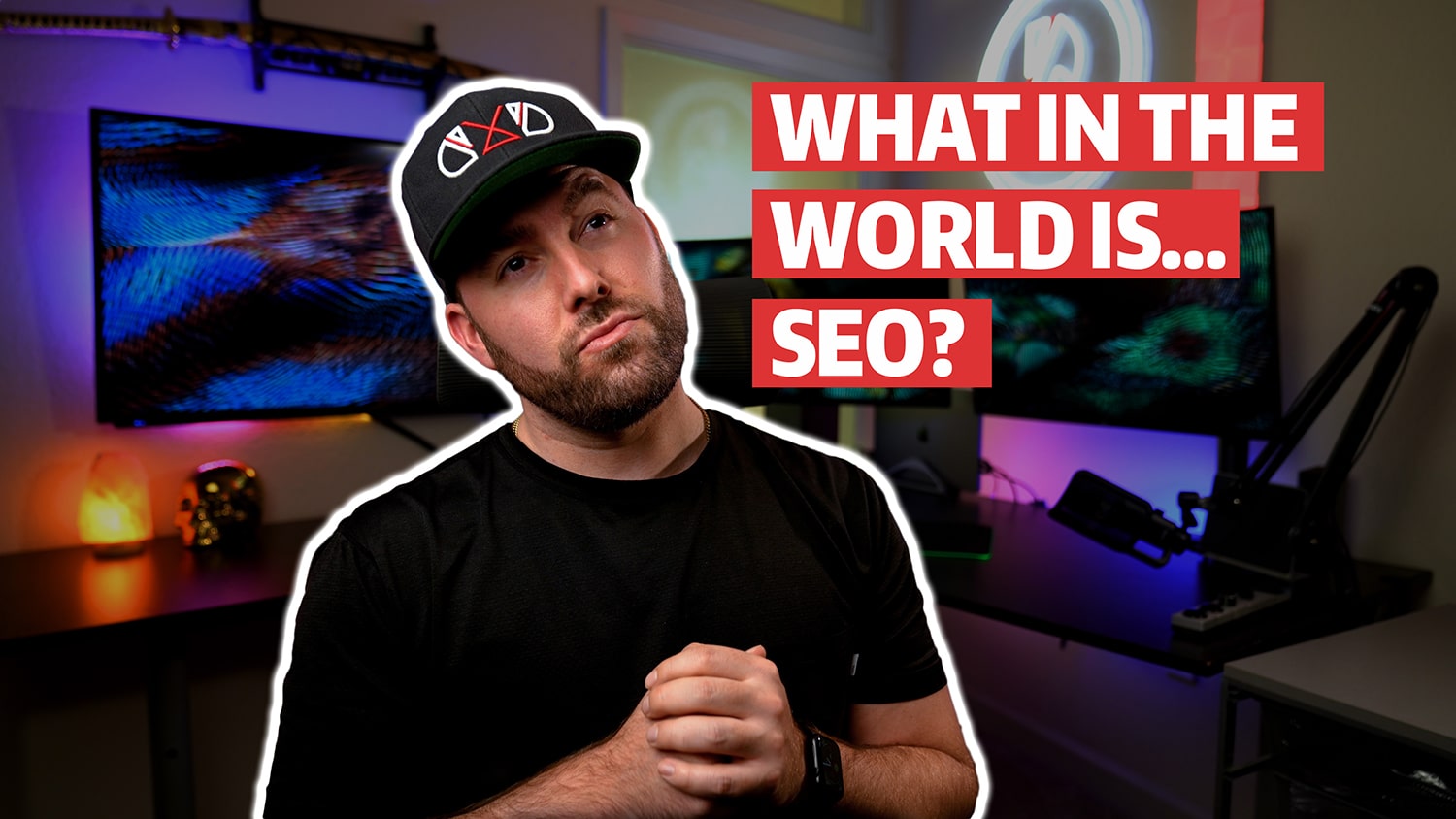SEO (Search Engine Optimization) is a three-headed beast. Constantly evolving, constantly changing, and will drive you crazy, as you try to comprehend the vast depths of this monster…
Only kidding! Let me explain the truth. Search engines are constantly indexing everything they can find on the internet, and their goal is to make sure that whatever you search, has the best answer to your search term.
Using SEO is how you tell the search engines, “My content is the best! Put mine higher!”.
But there’s more to SEO than that. It can also help you as well. Here’s why.
Why SEO
It Tells You What People Are Searching For
If you’re lost on what type of website to start, you can use something like Google Trends or Bing Webmaster Tools to research what’s popular.
If you’ve already picked something, you can put in your main keyword, something like “brushes” or “celebrity scandals”, and it’ll show you relevant searches and topics. You can then plan your content accordingly.
Helps You Build Your Website
If nobody can find your website, then it might as well not exist, right? Keeping SEO in mind as you build the pages, will help you out later when the search engines start indexing your site.
Building it without SEO is the same as shooting your shot in the dark. Sure, you may like it, but how do you know that others will? Why not use the data that’s available to you, to make sure that you’re hitting not only the right number of people, but also the most?
How Do Search Engines Rank Websites?
There are more than a few ways to get the ol’ SEO cogs turning! Here are a few examples of your basic bread and butter techniques!
Backlinks
Backlinks work incredibly well, as long as you’ve got the right connections!
A backlink is someone linking to your content from their own site. Now, that site will already be indexed, and could also be ranked extremely high on all the search engines. So by them including a link, it’s essentially the same as “Hey, Google! This site exists! Go index it, quickly!”. Their popularity helps yours.
Now imagine this process happening on 1000s of websites. Google will see this and think, “Oh wow, all these big websites are linking to this, so it must be useful! I’ll rank it high!”. And that’s the beauty of backlinks.
Relevance
Search engines have become incredibly smart, to the point where they can establish what the context of your content. AI is getting pretty scary!
Relevance works by using a thing called interaction data. It can tell the difference between if a person means, for example, JAVA the coding language, or Java the fruit.
By using the mountain of search queries recorded in their engines, they can make assumptions about what the user is most likely searching for.
So, for you, when you’re planning your content, make sure that there’s something included called “LSI Keywords”. These are contextual keywords, they help Google decide whether you’re JAVA the coding language, or a plum. You can find about LSI keywords by using many available pieces of software online, like LSIGraph.
Freshness
By freshness, we don’t mean the 90s term for good fashion, we mean dates. The calendar type, not the significant other type!
Search engines want to make sure that the results of a search query are up-to-date. This is especially crucial if you’re in an industry that constantly updates and evolves. When a person searches for “new Samsung phone”, the results won’t show a Galaxy S8, they’ll want to show the latest release. Common sense, right?
There are 2 ways to use this to your advantage. You can make timeless content, where the knowledge represented will remain relevant forever, or you can keep your pre-existing articles updated with edits.
This doesn’t mean you can update the title from 2021 to 2022; search engines will still scan your content after updating, to make sure it does indeed represent update information. If only things were that easy…
Topical Authority
Search engines like it when websites know their stuff. They like it when websites know their stuff over and over, so when the same website releases something about the same topic, they’ll know it’ll be consistently great.
In the shortest of terms possible, this is what it boils down to. Be good at what you know. If you’re a paper-clip company, keep writing about paper-clips. If you’re a dog food company, keep writing about dog food.
Eventually, search engines will look at what you’re offering, and establish that when a person searches for dog food or paper-clips, you’re the website to show to people first. Never stray away from the niche! You’ll even outrank the mainstream titans, and that’s not a joke.
Page Speed
It need not be said. Nobody likes waiting for a page to load. I bet even you don’t.
That’s why page speed is a definite factor when it comes to SEO. Low page speed affects your bounce rate, which tells search engines that people won’t stick around to see whether you’re useful or not. So, why show it to others?
If your site is already pretty fast, making it slightly faster won’t have much impact. If it takes longer than 3 seconds, that’s when you’ve got a problem.
You can check the health of your site by using Page Speed Insights, which is owned by Google. If there’s a lot of red, pass it to your developer and tell them to get to work!
Mobile-Friendliness
Everyone’s on their phones these days, including us. Search engines know this, so they look out for this specifically.
Search engines will index the mobile version of your site before the desktop version. That’s the harsh reality. So, when designing your website, make absolute sure that the mobile version is working as intended.
If not, time to summon those web developers again. You can use Google’s Mobile-Friendly Test Tool to get an accurate report of what’s going wrong, if there is anything.
Why Does It Matter?
How many times have you gone to page 2 of your search results? I’m guessing not many times, right?
It’s important that your website ranks among the top 5 results for your chosen SEO target. Otherwise, you’ll be getting the dregs of people who aren’t as sure about what they want, which means they’ll be harder to either convert into a sale or stay to read your article.
This can also snowball into other things. The more popular you are on a search result list, the more interaction you’ll get. Other sites will backlink to you, you’ll start appearing on social media more, there’s a ton of benefits to it.
The icing on the cake is that following SEO practices result in a user-friendly website. So don’t ignore it!
Final Thoughts
SEO is your friend, not your enemy. I know this all looks complicated and arduous, but there are tools to help you along if you’re a person who wants to do it themselves.
If not, there are plenty of SEO experts that can transform your website into the star it’s meant to be, who have done all of these techniques thousands of times. If time isn’t your friend, let the experts handle it. It’s an investment that will return on itself in no time at all!

